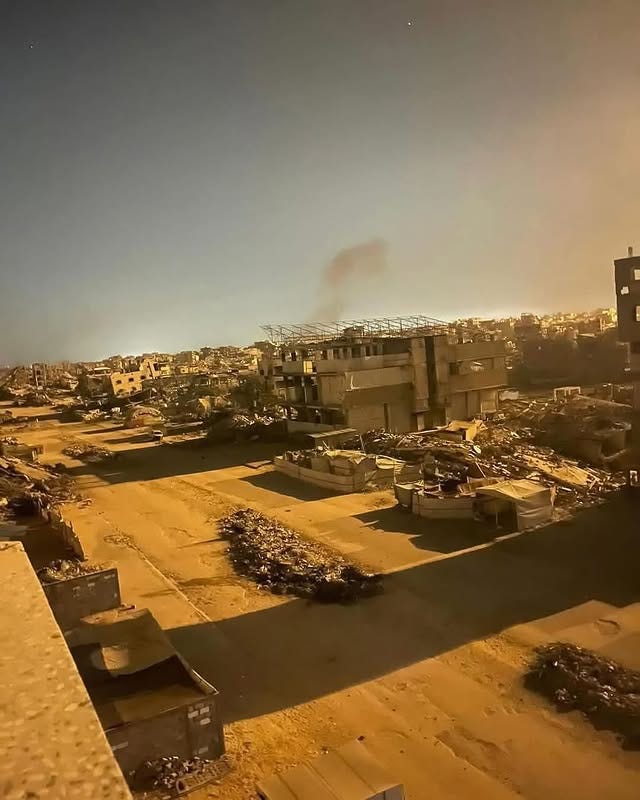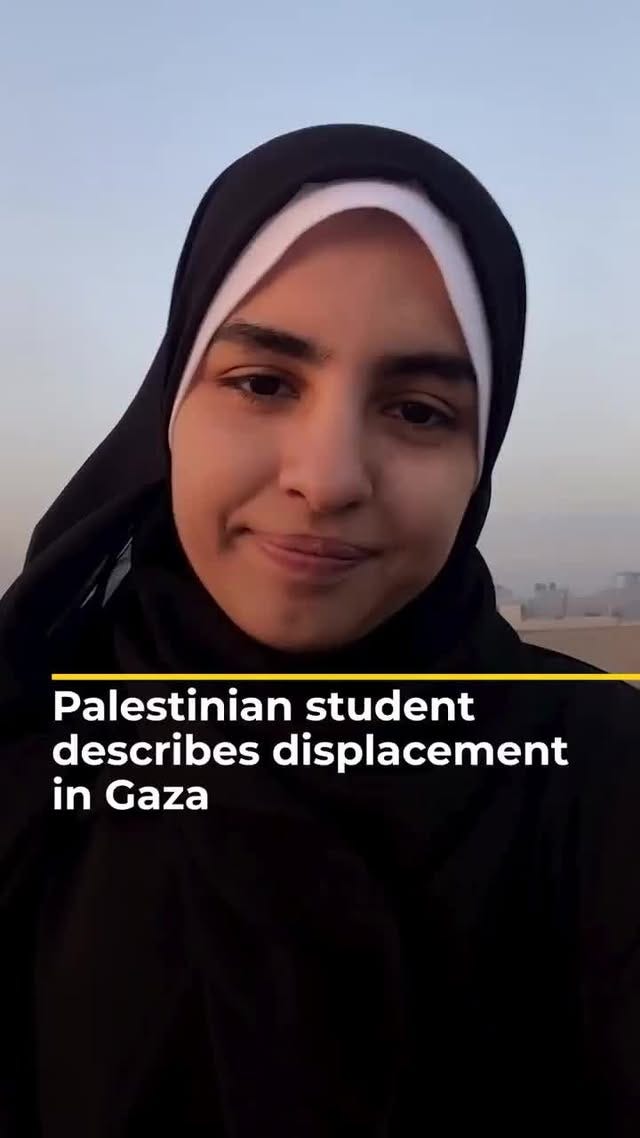Some of us are tired of surviving
For many in Gaza, death isn't always the worst outcome.
What kind of world forces people to beg for death to feel peace?
I’ve survived so many times now I’ve lost count. I was pulled from the rubble with my son after our home was flattened, walked for hours carrying a bag of bread and the bones of what once was a life, fled neighborhoods, towns, and streets we once called home, only to find no home waiting on the other side, and every time I survived, something else died. Sometimes, it was a friend. Sometimes a cousin and sometimes a colleague. Some other times it was the sound of my son’s laughter and my own belief that living means something.
Survival is not a blessing.
I’ve come to learn that survival is just another word for staying inside the pain. People wake up every day in a different place than where they were yesterday and find it more crowded and more tired and more broken. Stepping over children sleeping on cardboard under trees is now a normal thing, and the days are all the same. So are the struggles of hunger and water and the bitter metallic taste. The same questions about where we should go next, what we will eat today, and who else we’ve lost.
A reporter captured the moment at midnight, as the sky lit up like day from illumination flares.
The caption reads:
“We are dying. The Israeli bombing is relentless. Women and children are the victims. No safe places left. No food, no water. Famine is spreading rapidly.”
I’ve sat with people who don’t run anymore when leaflets fall from the sky, I remember talking to a woman in Khan Younis who told me she stayed in her home after the first warnings. Her name was Sameera and she was sixty-two. Her husband was too sick to walk and she couldn’t carry him. “If we leave, we die on the road. If we stay, we die here,” she said. “At least here I know the ground. I know which walls will fall on me.”
She didn’t say it with fear. There was simply no fear left.
Another man in Deir Al Balah was standing in the middle of a bombed street and sweeping glass and dirt into a pile. He’d lost two of his daughters, and when I asked him why he didn’t leave earlier, he said, “I didn’t want to spend the last moments of my life running.”
It’s neither courage nor resistance, only exhaustion, the kind that comes with an understanding that in Gaza there is no such thing as a safe place. We just run until our legs and souls give out. And even if we make it out alive, we still carry the weight of every person who didn’t.
In one video, a child sits on top of the rubble sobbing. His father is still trapped beneath the debris.
People always say survival is the goal and we’re lucky to have made it. But there’s no such thing as luck about people dissolving slowly and dying in slow motion.
During my months reporting from there, I saw children who don’t speak anymore. I once saw a boy in Jabalia who used to love cartoons but now just sits and stares at the wall. When I tried to ask for his name, he covered his ears. His mother said he hasn’t spoken since the missile hit their home and took his sister.
When someone cries out of an injury, we know they’re still holding on. But when they just stare at the ceiling as they bleed, we know they’ve already left, even if their body hasn’t.
There is nothing noble about this kind of survival. There is no aftercare or healing.
A young Palestinian student, Shayma, describes what it’s like to be forcibly displaced amid the devastation and having nowhere to go. The camera pans across the flattened neighborhood where she is sheltering.
We don’t want to die. But when some of us fantasize about death, it’s because we’re full of everything that hurts. Our moms whisper that they envy those who died peacefully and quickly. I myself used to shower in cold water at night just to feel something cold. My neighbor lost her baby to dehydration around the time my son and I were diagnosed with malnutrition in March 2024. She still carries his blanket in her bag.
And here my friends tell me to stay strong and safe. But I don’t want strength anymore. I don’t want to be the one who survived everything. I don’t want my son to grow up believing that pain is something you get used to or that losing everything and still breathing means you’re lucky.
We all have our tricks for trying to suffer a little less. Some stop talking about the people they lost because even saying a name is unbearable. Some lie to themselves and pretend their loved ones are still displaced just somewhere they can’t reach. Some stop eating because food feels like a betrayal when the person you used to share it with is gone.
I once believed that writing would help me make sense of it and that putting these stories down would somehow soften them. But even that doesn’t work anymore. I can’t keep writing about mass graves and call it documenting and narrating pain while still living inside it.
There is nothing poetic about this grief. It is ugly and it is heavy and it is repetitive. Sometimes I walk for hours just not to think and keep my body moving while my mind shuts down, or just to delay the next memory from arriving.
I still wake up sometimes believing we’re back home and feel like I’ll hear my mother’s voice and make coffee in our old kitchen.
The truth is, survival, when it’s endless and hollow and filled with nothing but hunger and mourning and fear… it begins to feel like a punishment.
We are alive in ways no one in this world would envy.
So when the people in Gaza no longer pray for safety, it’s because we’ve seen too much and lost too many.




Thank you from the bottom of my heart for managing, amidst it all, to find the words that so many of us cannot find. Thank you for documenting so that we can bear witness, stand in solidarity, and fight with/for your survival, human rights, liberation, freedom. We will never ever forget and will always act for Truth and Justice for the Palestinian people, for humanity.
I have no words. All I can say is that I read every one of yours, wishing they were saying different things.